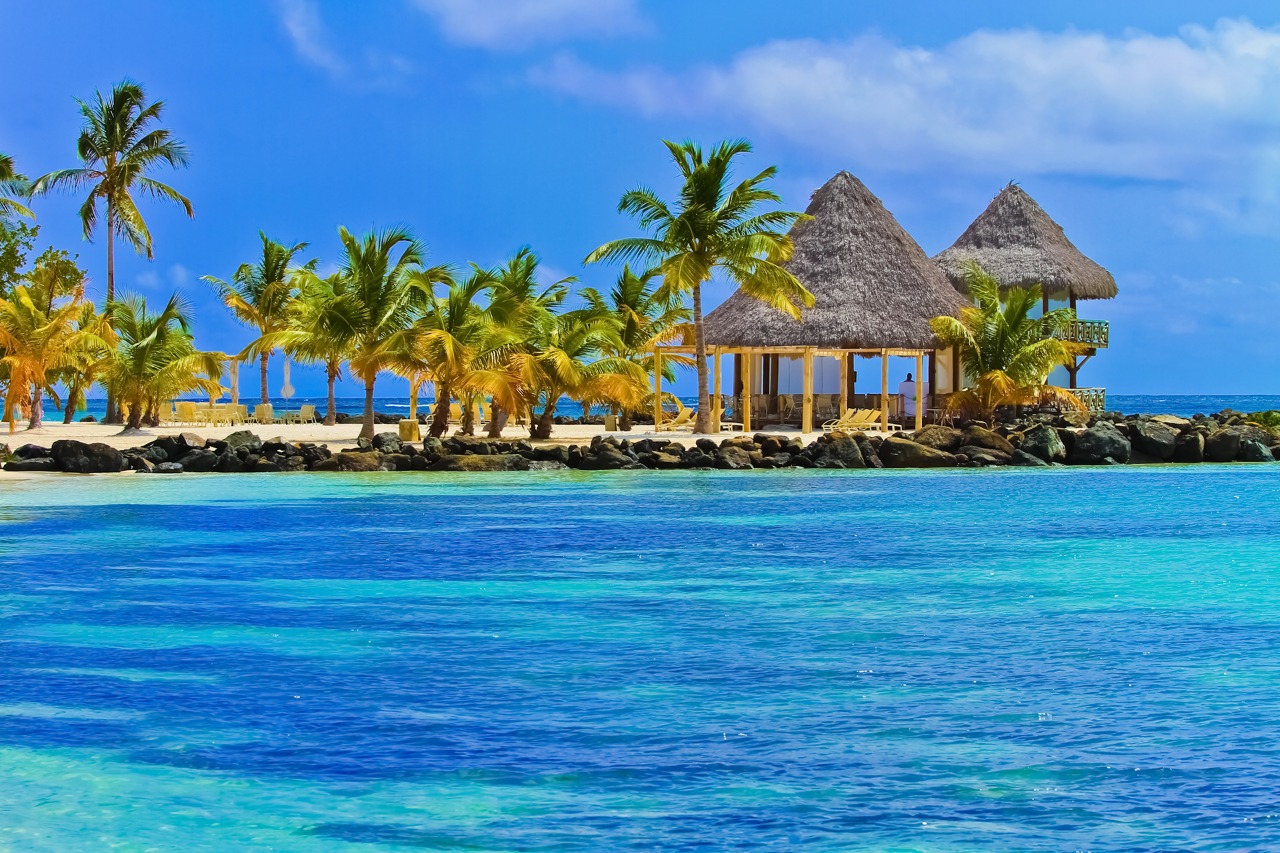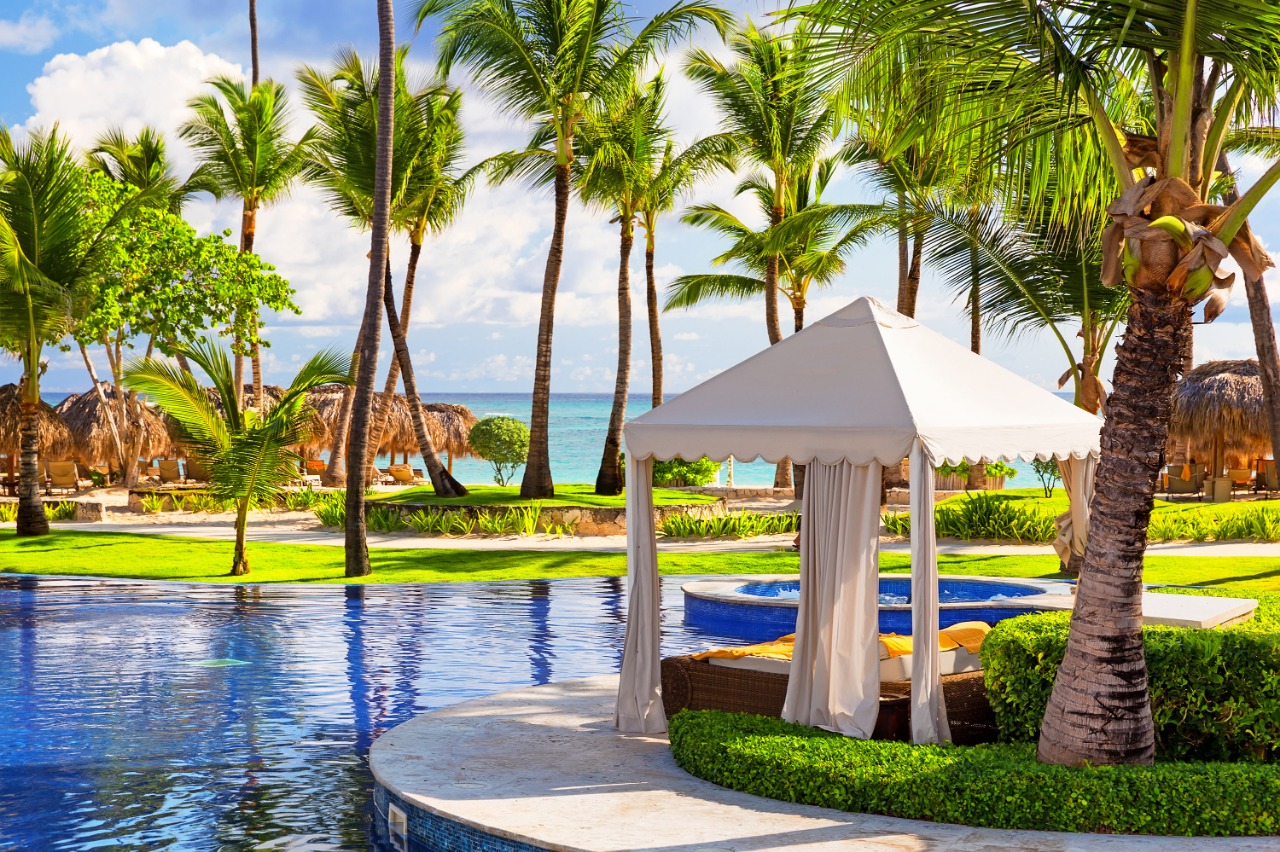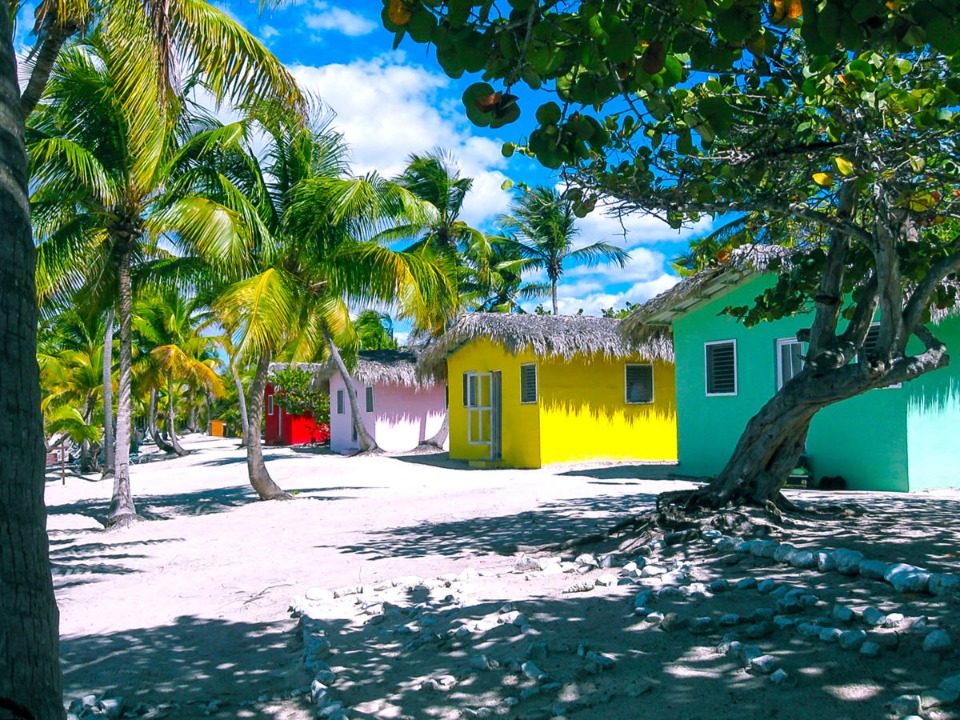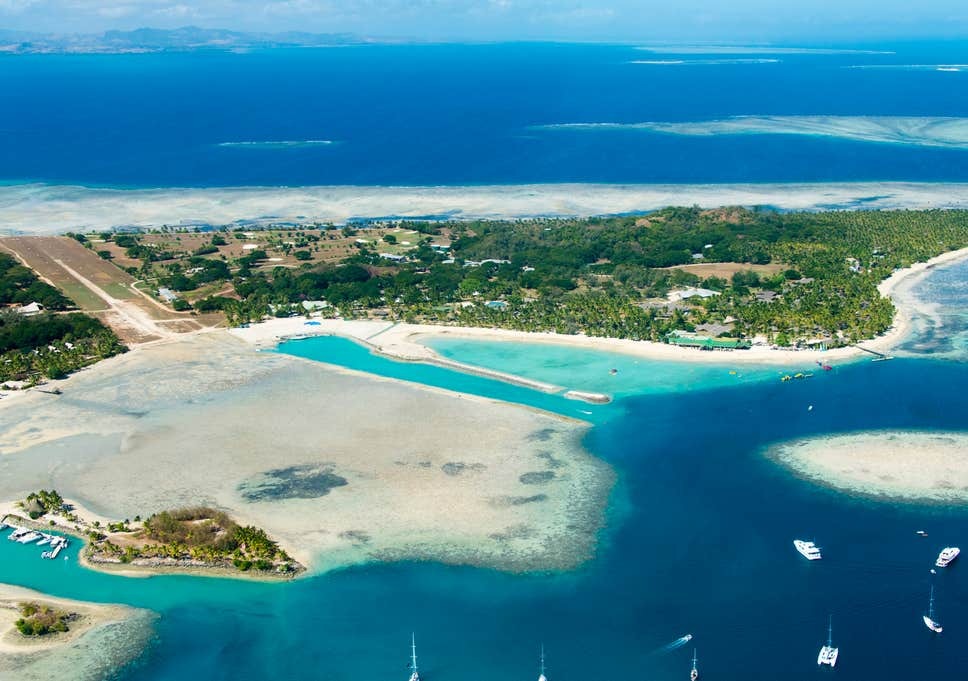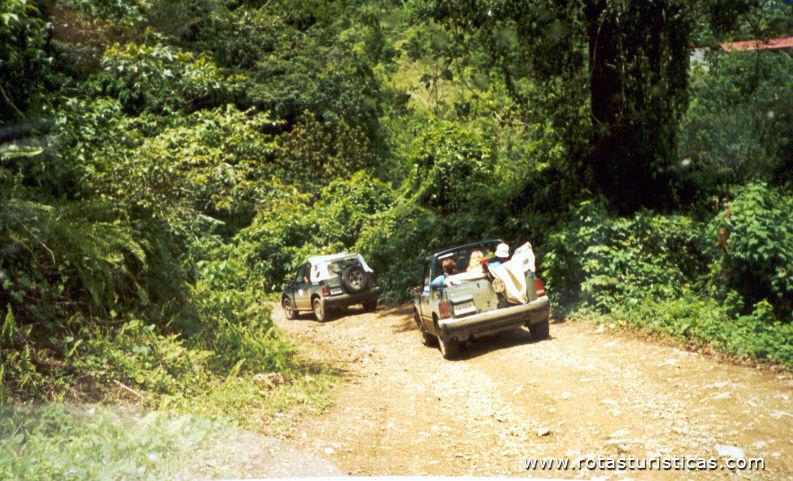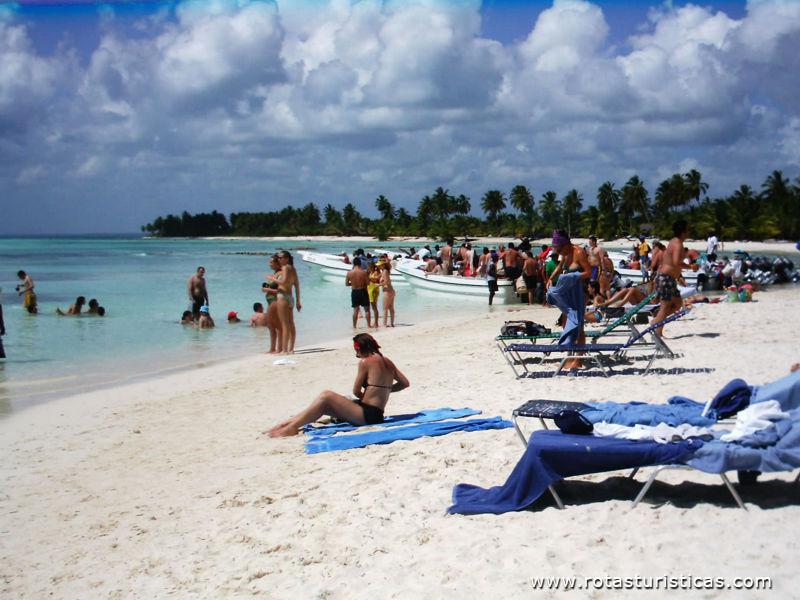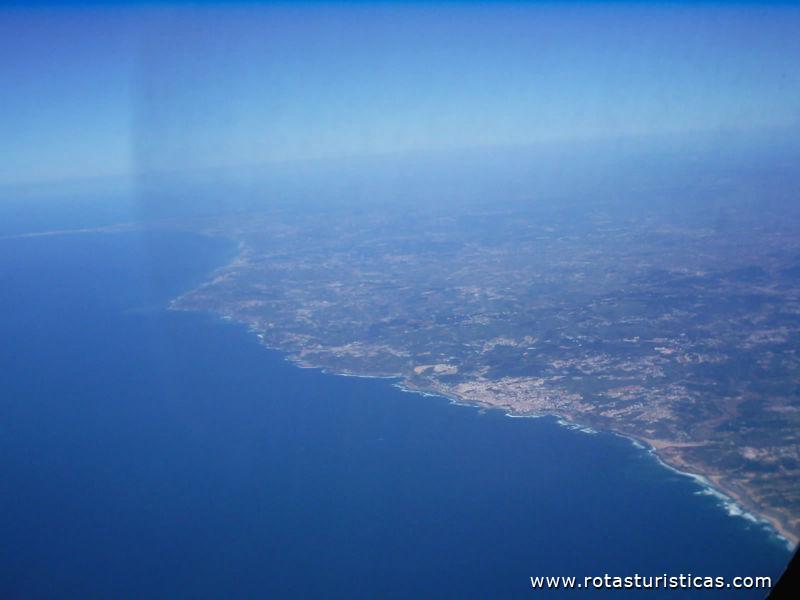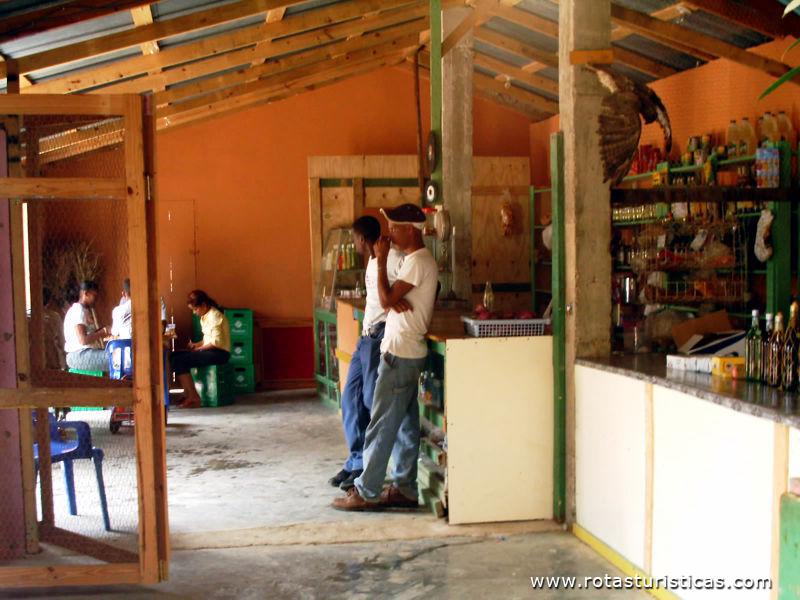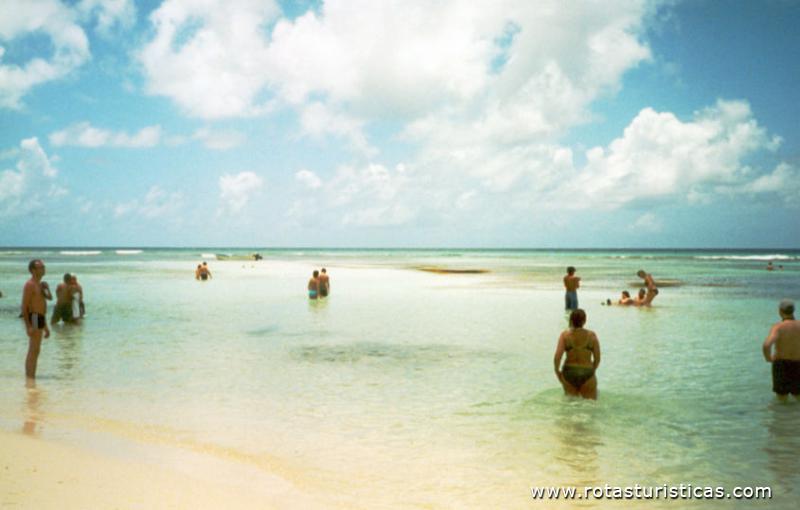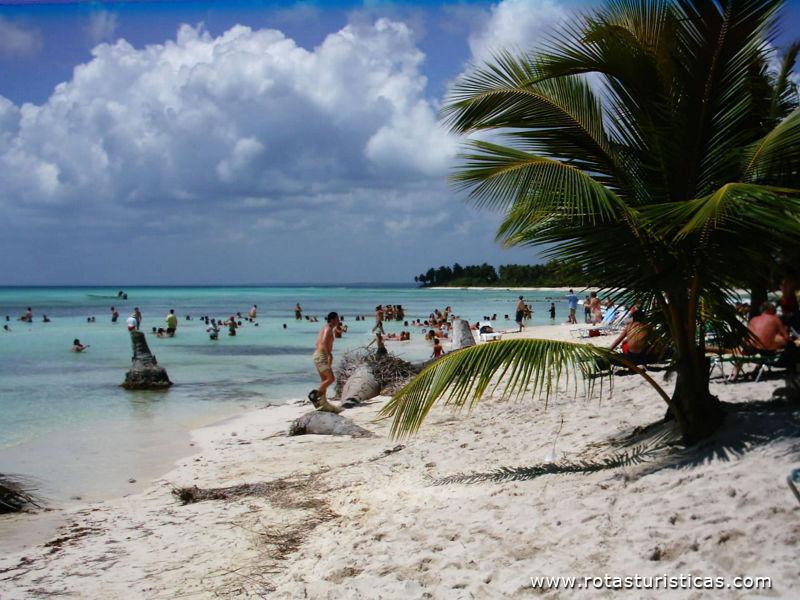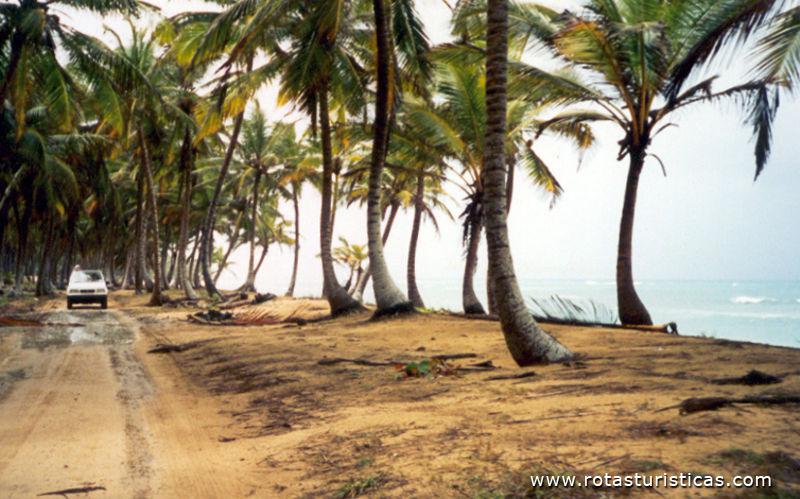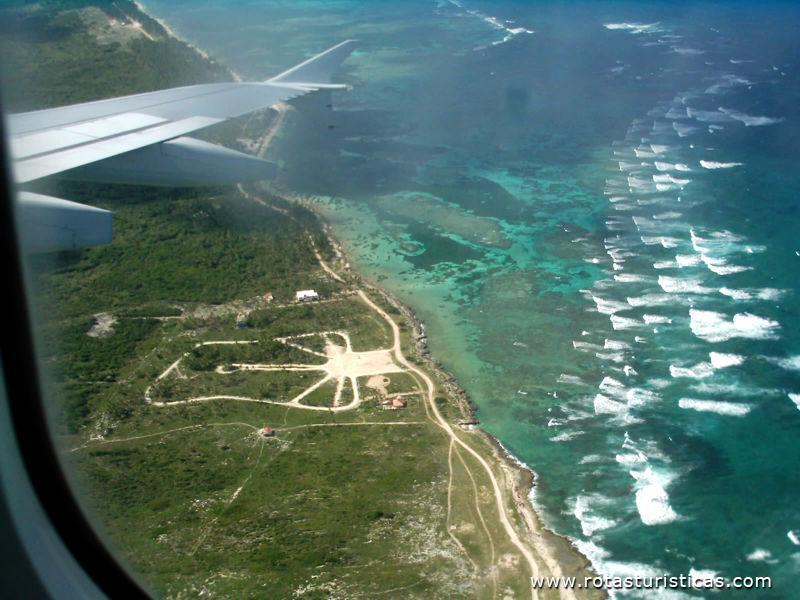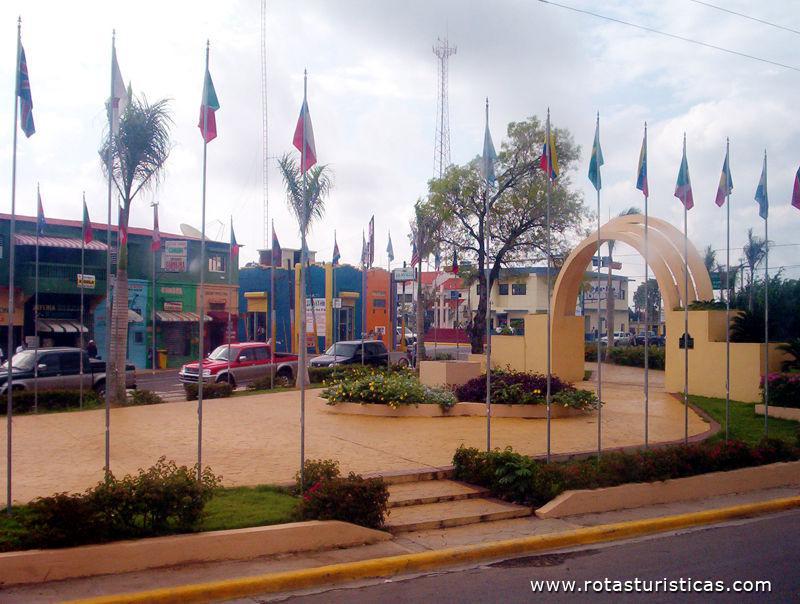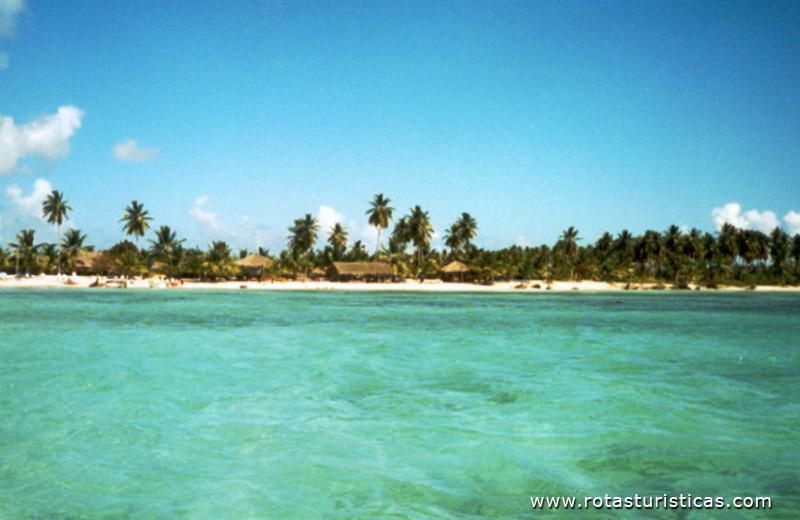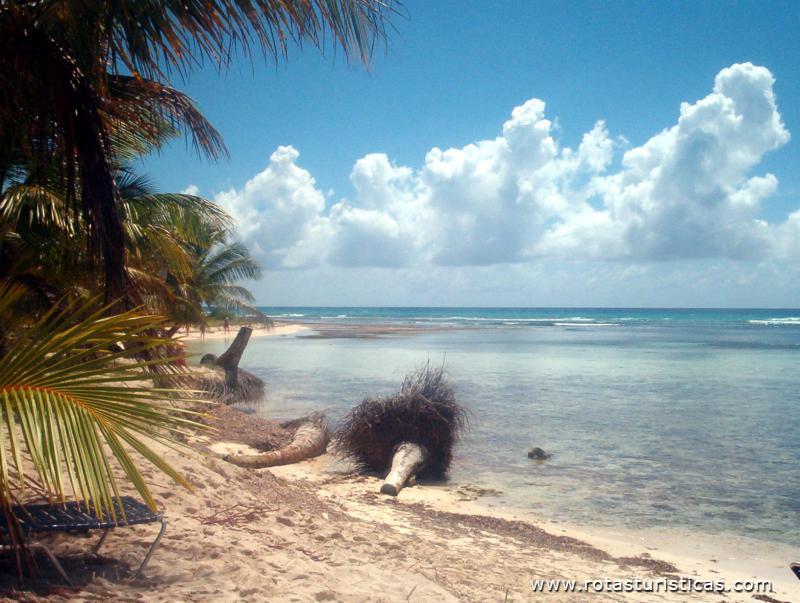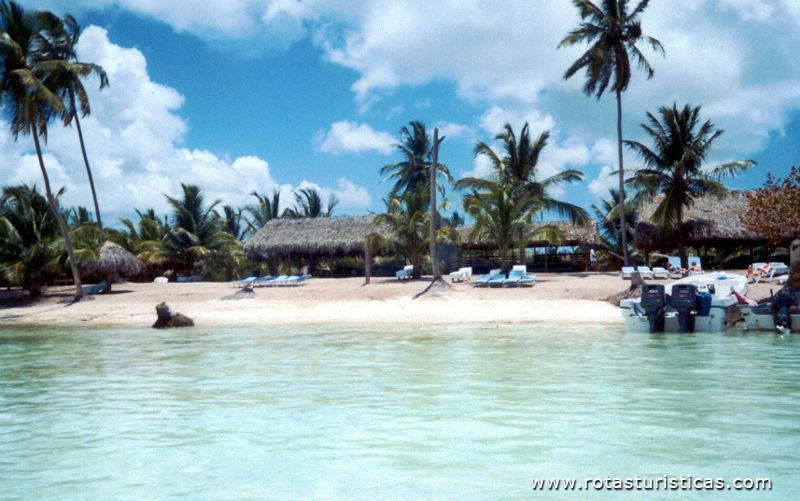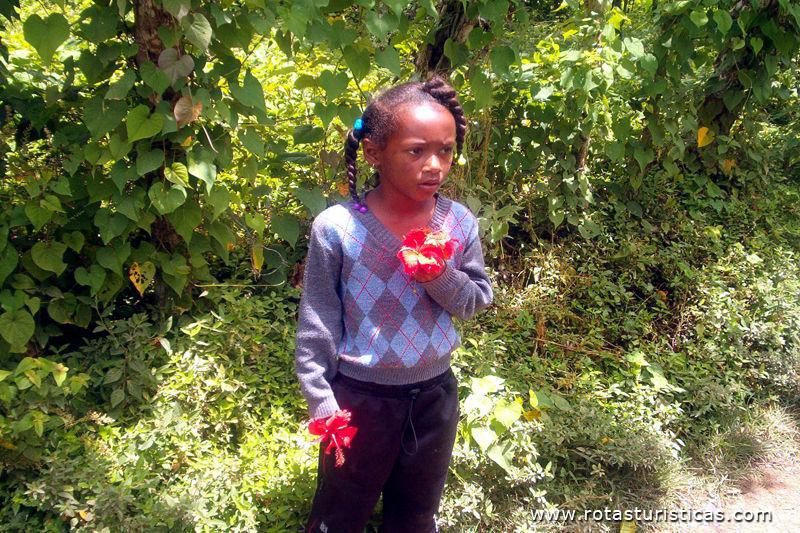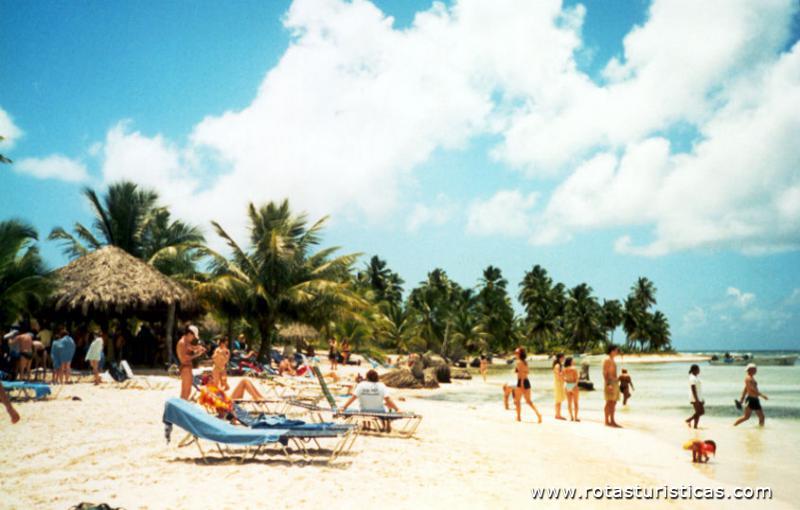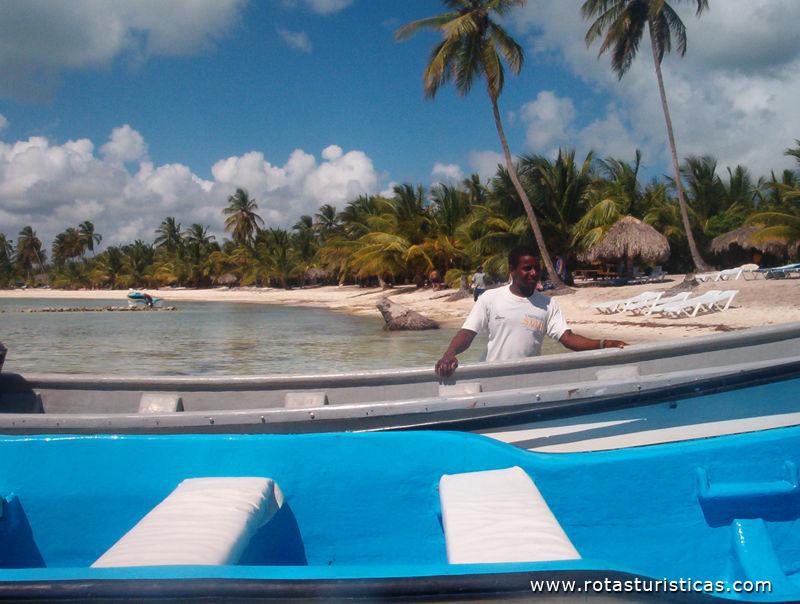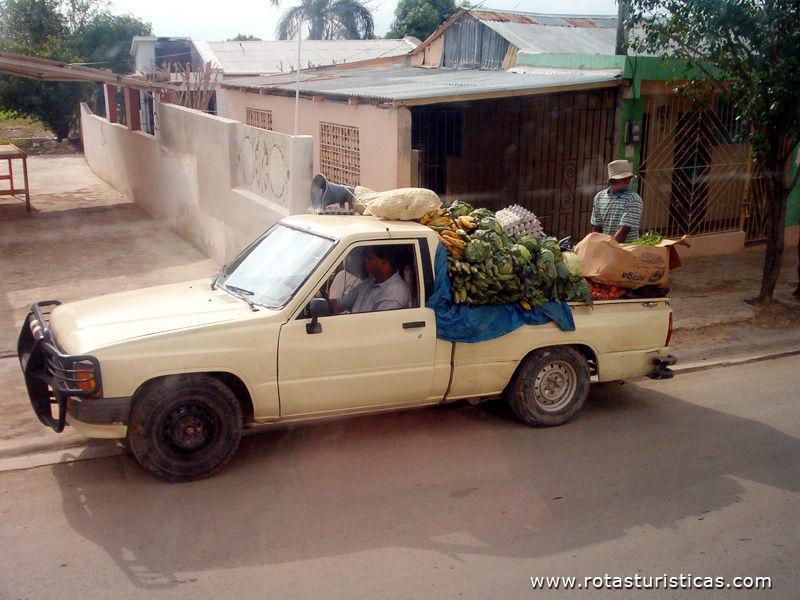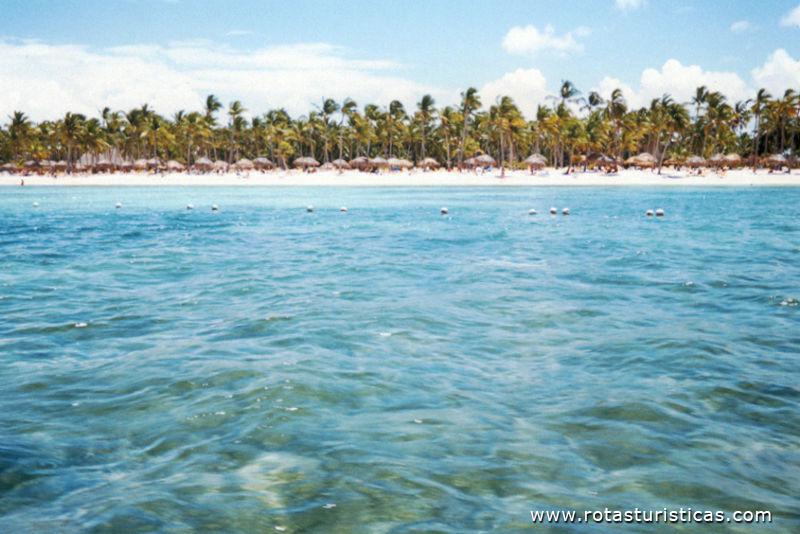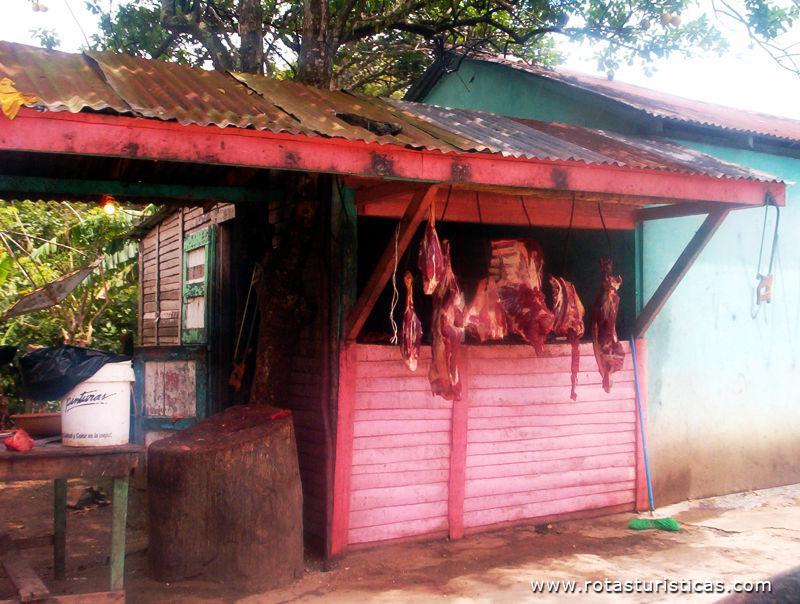Pictures of: Dominican Republic
Location map
Airports
Hotels and other Accommodation
Golf Courses
What to visit
Where to Eat
Where to have fun
Consulates & Embassies
World Nomads
The Travel Insurance with the largest coverage

The Travel Insurance with the largest coverage

Dominican Republic
Dominican Republic is a nation on the island of Hispaniola, part of the Greater Antilles archipelago in the Caribbean region. The western part of the island is occupied by the nation of Haiti, making the island one of two in the Caribbean, along with Saint Martin, which is shared by two countries. By area and population, the Dominican Republic is the second largest country in the Caribbean (after Cuba), with 48,445 square kilometers and an estimated population of 10 million people, one million of whom live in the capital, Santo Domingo. .
Official language
Spanish
Currency
Dominican Peso
Documentation
The passport must be valid for 6 months. An exit fee is received in half when the plane ticket is issued, and the other half when leaving the country. It is imperative to have this amount with you for boarding the return flight.
Tourism
This is often the cheapest destination in the Caribbean, but nevertheless. The Dominican Republic has beautiful beaches on over 1,500 kilometers of coastline, year-round heat, colorful drinks, grand hotels, golf courses. It is a warm people who welcome their visitors in the mood of meringue, bachata and reggaeton. The country occupies two-thirds east of Hispaniola Island, with neighboring Haiti on the left. It was on his territory that Christopher Columbus first docked in the Americas - and the navy's remains are believed to be buried in El Faro a Colón, a lighthouse located in the capital, Santo Domingo. As the point from which Spain began the conquest of the new continent, the city houses a colonial area of cobbled streets and historic buildings that is worth visiting. But it also has modern airs and bustling nightlife, with restaurants and bars serving good food at fair prices. And the contact with the turquoise water and the fine sand of the Caribbean is close by, 30 kilometers from the center, in Boca Chica, a beach protected by a coral reef. But it is to the east end of the island, 217 kilometers from the capital, that almost everyone wants to go.
Punta Cana is a backdrop of magnificent beaches, punctuated by high-winded coconut palms and coral reefs that make the waters calm, perfect for snorkeling marine life. Gigantic resorts - more than 30 in the region - are packed with bars, restaurants, casinos and night clubs, not to mention that some have splendid golf courses, the country's symbol sport. Already on the northeast coast of the Dominican Republic is the Samana Peninsula and its virtually untouched beaches. The biggest attraction of the place happens between December and April, with the show of the humpback whales, who swim from the North Atlantic to there for the birth of their young.
Punta Cana is a backdrop of magnificent beaches, punctuated by high-winded coconut palms and coral reefs that make the waters calm, perfect for snorkeling marine life. Gigantic resorts - more than 30 in the region - are packed with bars, restaurants, casinos and night clubs, not to mention that some have splendid golf courses, the country's symbol sport. Already on the northeast coast of the Dominican Republic is the Samana Peninsula and its virtually untouched beaches. The biggest attraction of the place happens between December and April, with the show of the humpback whales, who swim from the North Atlantic to there for the birth of their young.
Gastronomy
Dominican cuisine is a reflection of Spanish and African influences that have influenced the country's social and cultural background.
Typical dishes: Sancocho (beef stew); Moro (beans, rice and stuffed meat); I live in Guandules con Coco; Locrio (classic paella-like Creole Dominican cuisine), Asopao (rice, chicken, tomato and cilantro soup), Pica Pollo (pieces of fried chicken), Tostones (fried green banana with salt, vinegar and garlic), Yaniqueques ( baked flour pie with sodium bicarbonate, water and salt); cassava dumplings; cassava pies; and desserts like dulce de leche or coconut candy.
Vitamin R. The best known drink in the Dominican Republic is Rum, known by Dominicans as “Vitamin R”.
Mamajuana Another typical drink of the Dominican Republic is mamajuana, which according to Dominicans has aphrodisiac powers. This alcoholic drink is made with various types of herbs and roots such as cinnamon, pita, cinnamon, timacle, marabeli, guayacán, cloves, anise, etc. with red wine, honey and rum.
Typical dishes: Sancocho (beef stew); Moro (beans, rice and stuffed meat); I live in Guandules con Coco; Locrio (classic paella-like Creole Dominican cuisine), Asopao (rice, chicken, tomato and cilantro soup), Pica Pollo (pieces of fried chicken), Tostones (fried green banana with salt, vinegar and garlic), Yaniqueques ( baked flour pie with sodium bicarbonate, water and salt); cassava dumplings; cassava pies; and desserts like dulce de leche or coconut candy.
Vitamin R. The best known drink in the Dominican Republic is Rum, known by Dominicans as “Vitamin R”.
Mamajuana Another typical drink of the Dominican Republic is mamajuana, which according to Dominicans has aphrodisiac powers. This alcoholic drink is made with various types of herbs and roots such as cinnamon, pita, cinnamon, timacle, marabeli, guayacán, cloves, anise, etc. with red wine, honey and rum.
Weather
The climate in the Dominican Republic is tropical humid. The average annual temperature ranges from 18 ° C / 65 ° F to 27 ° C / 81 ° F. The geographical location of the country determines the general characteristics of a pleasant climate, dominated mainly by the northwestern trade winds, and local variations are conditioned by the relief of its mountain ranges that are located between valleys, rivers, springs and coastal plains.
Safety
Security conditions are deficient.
The Dominican Republic is going through a difficult period caused by the deterioration of the economic and social situation, in which rising inflation has been causing general strikes that periodically paralyze the country. The central districts of the capital and tourist regions have never been affected by these movements, however. Hotel services have always been operating normally.
There is a clear growth in delinquency, making tourists preferential targets and sometimes victims of identity theft, money and luggage.
You should keep the usual safety precautions. Keep your documents (passport, ID, plane tickets, driving license, etc.) in the hotel safe and keep a copy with you at all times.
The Dominican Republic is going through a difficult period caused by the deterioration of the economic and social situation, in which rising inflation has been causing general strikes that periodically paralyze the country. The central districts of the capital and tourist regions have never been affected by these movements, however. Hotel services have always been operating normally.
There is a clear growth in delinquency, making tourists preferential targets and sometimes victims of identity theft, money and luggage.
You should keep the usual safety precautions. Keep your documents (passport, ID, plane tickets, driving license, etc.) in the hotel safe and keep a copy with you at all times.
Health
It is essential that anyone traveling to the Dominican Republic take out insurance prior to departure to fully cover the costs of any on-site health expenses and the costs of health repatriation. The fees of quality local hospital establishments are very high and should be paid in dollars immediately.
You are advised to consult your doctor before traveling, informing you of the dangers that currently exist. Vaccines against diphtheria, tetanus, polio, typhoid, hepatitis A and B, and rabies are recommended.
It is advisable to consume bottled water, which is easily sold all over the country. Preferably, require the bottle to be opened in front of you.
Avoid bathing on unsupervised and freshwater beaches.
You are advised to consult your doctor before traveling, informing you of the dangers that currently exist. Vaccines against diphtheria, tetanus, polio, typhoid, hepatitis A and B, and rabies are recommended.
It is advisable to consume bottled water, which is easily sold all over the country. Preferably, require the bottle to be opened in front of you.
Avoid bathing on unsupervised and freshwater beaches.
Electricity and Telecommunications
The telephone network is good.
The use of mobile phones is possible.
Electricity
Electricity is 110 Volt 50 Hz. It must be accompanied by a power converter and a plug adapter kit.
The use of mobile phones is possible.
Electricity
Electricity is 110 Volt 50 Hz. It must be accompanied by a power converter and a plug adapter kit.
Other tourist destinations in:
Dominican Republic
Dominican Republic
Other world tourist destinations
Why to book with TURISMO & VIAGENS
The best prices
Our partnerships with the world´s largest operators offer research on the best market prices.
More options
At Rotas Turisticos you can book the hotel, buy the air ticket, book the transfer from the airport to the hotel and vice versa, book the local excursions, rent the car, take travel insurance and consult the places to visit and where to go.
Holiday Tips & Destinations
Hundreds of holiday destinations with all the options that allow you to easily choose the destination that best suits your dream vacation.
TURISMO & VIAGENS
Links

